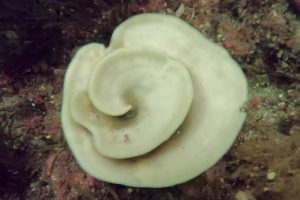A mass bleaching of more than 50 million sponges in New Zealand’s Fiordland was the largest of its kind ever recorded globally, scientists said on Wednesday, August 7. 2024.

The 2022 mass bleaching was estimated to have cut the population by close to half, a study found.
Lead author James Bell, a marine biologist at Te Herenga Waka, Victoria University of Wellington, said the bleaching occurred during an intense marine heatwave that lasted 259 days.
The bleaching also pushed the water temperatures to 4.4 degrees Celsius above average.
The bleaching event occurred along 1,000 kilometres of coastline on the west coast of New Zealand’s South Island and saw the cup-shaped sponge Cymbastella lamellata turn from their usual chocolate-brown colour to a bright white.
“Not only was this largest sponge bleaching event seen globally, it was also the largest sponge mortality event that’s ever been recorded,’’ Bell said.
He said more than 90 per cent of the sponges were bleached, but some recovered, showing they might be able to adapt to heat stress.
“We detected changes in the microbial communities that these sponges play host to the tiny creatures they have a symbiotic relationship with.
“The changes we observed suggest the sponges are displaying a rapid evolutionary response to warming waters in an effort to survive.
“This gives us reason to be optimistic that sponges may be able to adapt to warming waters.
“However, we need to do more research to test this and to monitor how more frequent and intense marine heatwaves may affect this vital species,’’ Bell said.
